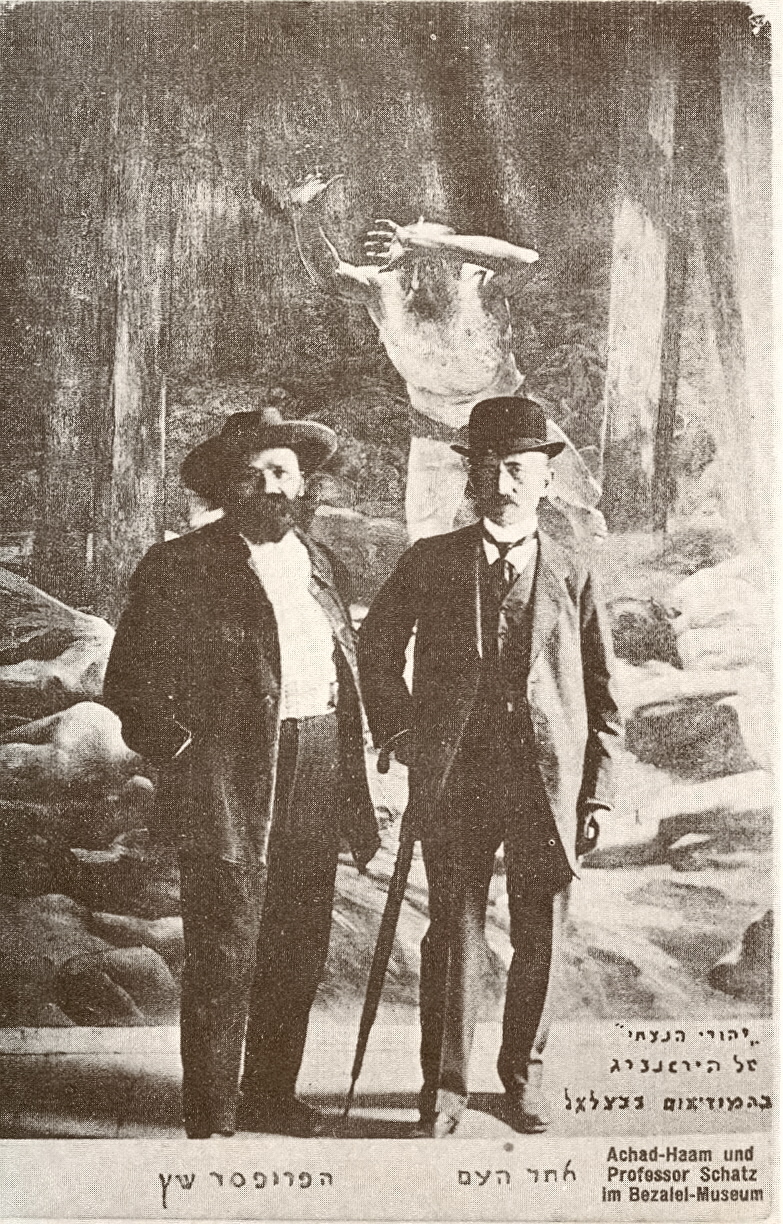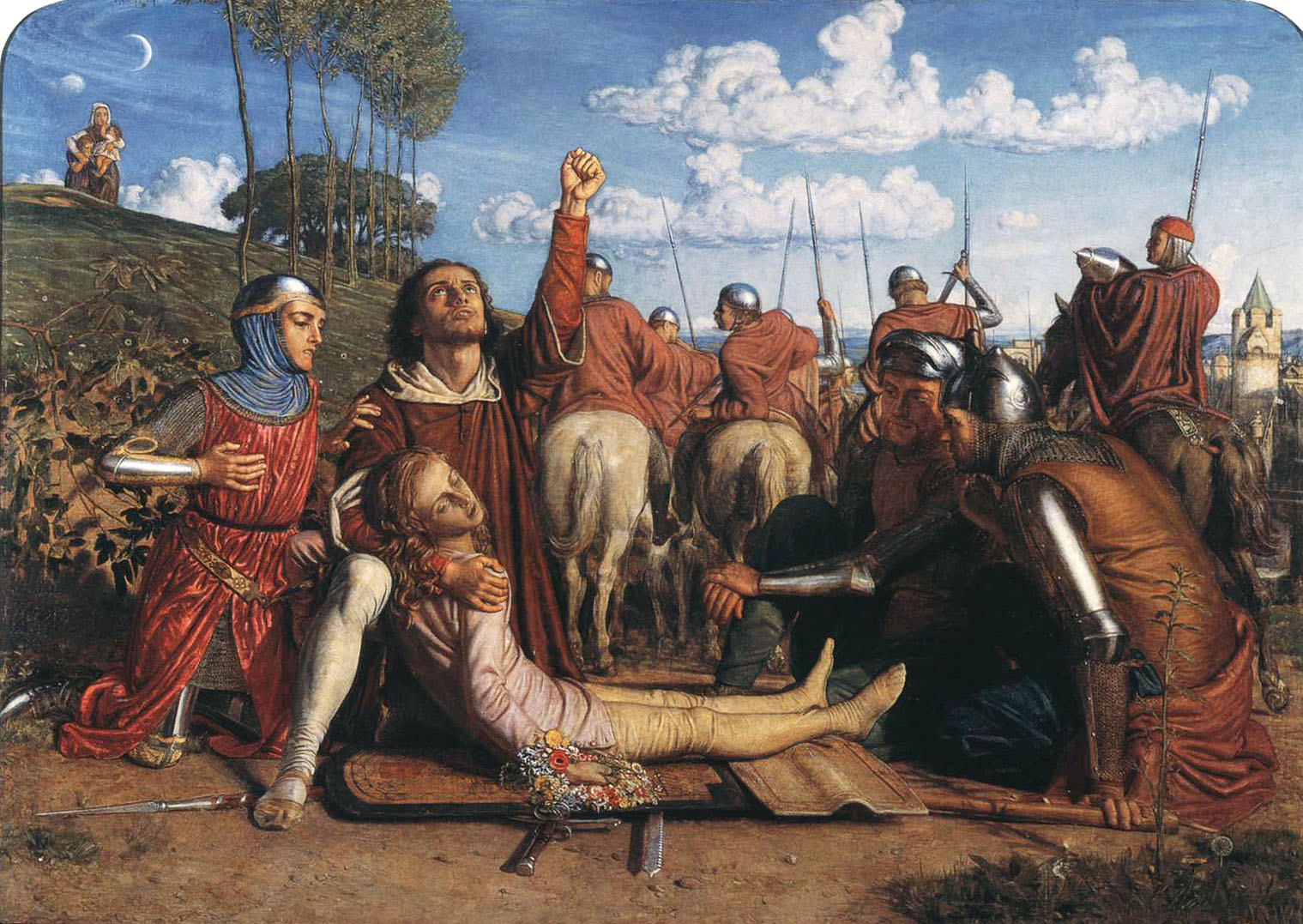|
Samuel Lublinski
Samuel Lublinski (18 February 1868 - 26 December 1910) was a Berlin-based writer, literary historian, critic, and philosopher of religion. He was a pioneer of the socio-historical study of literary movements and a major contributor to the debates about German-Jewish national and cultural identity of the era. Life Lublinski was born in Johannisburg, East Prussia (now Pisz, Poland). He came from a secular German Jewish family, and was the son of a businessman. He studied at several schools in Königsberg, but was repeatedly forced to leave because of his argumentative character. In 1887, he moved to Verona to work for the bookseller Leo Olschki. Lublinski later moved to Venice. In 1892 he returned to Germany and set up independently as a bookseller in Heidelberg, but in 1895 finally abandoned his profession to become a full-time writer. From 1895 he moved to Berlin, becoming a journalist and essayist on numerous topics. His first book was ''Jewish characters in Grillparzer, Hebbe ... [...More Info...] [...Related Items...] OR: [Wikipedia] [Google] [Baidu] |
Pisz
Pisz (pronounced , previously also ''Jańsbork'', german: Johannisburg) is a historic town in the Warmian-Masurian Voivodeship in northern Poland, with a population of 19,466 (2016). It is the seat of Pisz County. Pisz is situated at the junction of Lake Roś and the Pisa River, in the region of Masuria. Etymology The name Pisz originates from the word ''pisa'', meaning 'swamp' in the ancient Prussian language. Johannisburg received the name of the castle in 1645, when it became a city by the decree of Frederick William, Elector of Brandenburg. The local people of Masuria called the castle ''Jańsbork'', and this name remained until 1946. History The site of today's Pisz was originally inhabited by the indigenous ethnic group of Old Prussians. In 1345 the Teutonic Order began constructing a castle nearby at the southernmost point of the Johannisburger Heide, or Piska Forest, in the Masurian Lake District. The castle was named ''Johannisburg'', after St. John the Baptist. T ... [...More Info...] [...Related Items...] OR: [Wikipedia] [Google] [Baidu] |
Theodor Lessing
Karl Theodor Richard Lessing (8 February 1872, Hanover – 31 August 1933, Marienbad) was a German Jewish philosopher. He is known for opposing the rise of Hindenburg as president of the Weimar Republic and for his classic on Jewish self-hatred (''Der jüdische Selbsthaß''), a book which he wrote in 1930, three years before Adolf Hitler came to power, in which he tried to explain the phenomenon of Jewish intellectuals who incited antisemitism against the Jewish people and who regarded Judaism as the source of evil in the world. Lessing's political ideals, as well as his Zionism made him a very controversial person during the rise of Nazi Germany. He fled to Czechoslovakia where he lived in Marienbad in the villa of a local social democratic politician. On the night of 30 August 1933, he was assassinated by Sudeten German Nazi sympathizers. Lessing was shot through a window of the villa where he lived. His assassins were German Nazis from Sudetenland, Rudolf Max Eckert, Rudo ... [...More Info...] [...Related Items...] OR: [Wikipedia] [Google] [Baidu] |
German Male Dramatists And Playwrights
German(s) may refer to: * Germany (of or related to) **Germania (historical use) * Germans, citizens of Germany, people of German ancestry, or native speakers of the German language ** For citizens of Germany, see also German nationality law **Germanic peoples (Roman times) * German language **any of the Germanic languages * German cuisine, traditional foods of Germany People * German (given name) * German (surname) * Germán, a Spanish name Places * German (parish), Isle of Man * German, Albania, or Gërmej * German, Bulgaria * German, Iran * German, North Macedonia * German, New York, U.S. * Agios Germanos, Greece Other uses * German (mythology), a South Slavic mythological being * Germans (band), a Canadian rock band * German (song), "German" (song), a 2019 song by No Money Enterprise * ''The German'', a 2008 short film * "The Germans", an episode of ''Fawlty Towers'' * ''The German'', a nickname for Congolese rebel André Kisase Ngandu See also * Germanic (disambi ... [...More Info...] [...Related Items...] OR: [Wikipedia] [Google] [Baidu] |
19th-century German Jews
The 19th (nineteenth) century began on 1 January 1801 ( MDCCCI), and ended on 31 December 1900 ( MCM). The 19th century was the ninth century of the 2nd millennium. The 19th century was characterized by vast social upheaval. Slavery was abolished in much of Europe and the Americas. The First Industrial Revolution, though it began in the late 18th century, expanding beyond its British homeland for the first time during this century, particularly remaking the economies and societies of the Low Countries, the Rhineland, Northern Italy, and the Northeastern United States. A few decades later, the Second Industrial Revolution led to ever more massive urbanization and much higher levels of productivity, profit, and prosperity, a pattern that continued into the 20th century. The Islamic gunpowder empires fell into decline and European imperialism brought much of South Asia, Southeast Asia, and almost all of Africa under colonial rule. It was also marked by the collapse of the large ... [...More Info...] [...Related Items...] OR: [Wikipedia] [Google] [Baidu] |
German Essayists
German(s) may refer to: * Germany (of or related to) **Germania (historical use) * Germans, citizens of Germany, people of German ancestry, or native speakers of the German language ** For citizens of Germany, see also German nationality law **Germanic peoples (Roman times) * German language **any of the Germanic languages * German cuisine, traditional foods of Germany People * German (given name) * German (surname) * Germán, a Spanish name Places * German (parish), Isle of Man * German, Albania, or Gërmej * German, Bulgaria * German, Iran * German, North Macedonia * German, New York, U.S. * Agios Germanos, Greece Other uses * German (mythology), a South Slavic mythological being * Germans (band), a Canadian rock band * "German" (song), a 2019 song by No Money Enterprise * ''The German'', a 2008 short film * "The Germans", an episode of ''Fawlty Towers'' * ''The German'', a nickname for Congolese rebel André Kisase Ngandu See also * Germanic (other) * Germa ... [...More Info...] [...Related Items...] OR: [Wikipedia] [Google] [Baidu] |
Christ Myth Theory Proponents
Jesus, likely from he, יֵשׁוּעַ, translit=Yēšūaʿ, label=Hebrew/Aramaic ( AD 30 or 33), also referred to as Jesus Christ or Jesus of Nazareth (among other names and titles), was a first-century Jewish preacher and religious leader; he is the central figure of Christianity, the world's largest religion. Most Christians believe he is the incarnation of God the Son and the awaited Messiah (the Christ) prophesied in the Hebrew Bible. Virtually all modern scholars of antiquity agree that Jesus existed historically. Research into the historical Jesus has yielded some uncertainty on the historical reliability of the Gospels and on how closely the Jesus portrayed in the New Testament reflects the historical Jesus, as the only detailed records of Jesus' life are contained in the Gospels. Jesus was a Galilean Jew who was circumcised, was baptized by John the Baptist, began his own ministry and was often referred to as "rabbi". Jesus debated with fellow Jews on how ... [...More Info...] [...Related Items...] OR: [Wikipedia] [Google] [Baidu] |
1910 Deaths
Year 191 ( CXCI) was a common year starting on Friday (link will display the full calendar) of the Julian calendar. At the time, it was known as the Year of the Consulship of Apronianus and Bradua (or, less frequently, year 944 ''Ab urbe condita''). The denomination 191 for this year has been used since the early medieval period, when the Anno Domini calendar era became the prevalent method in Europe for naming years. Events By place Parthia * King Vologases IV of Parthia dies after a 44-year reign, and is succeeded by his son Vologases V. China * A coalition of Chinese warlords from the east of Hangu Pass launches a punitive campaign against the warlord Dong Zhuo, who seized control of the central government in 189, and held the figurehead Emperor Xian Emperor Xian of Han (2 April 181 – 21 April 234), personal name Liu Xie (劉協), courtesy name Bohe, was the 14th and last emperor of the Eastern Han dynasty in China. He reigned from 28 September 189 until 1 ... [...More Info...] [...Related Items...] OR: [Wikipedia] [Google] [Baidu] |
1868 Births
Events January–March * January 2 – British Expedition to Abyssinia: Robert Napier leads an expedition to free captive British officials and missionaries. * January 3 – The 15-year-old Mutsuhito, Emperor Meiji of Japan, declares the ''Meiji Restoration'', his own restoration to full power, under the influence of supporters from the Chōshū and Satsuma Domains, and against the supporters of the Tokugawa shogunate, triggering the Boshin War. * January 5 – Paraguayan War: Brazilian Army commander Luís Alves de Lima e Silva, Duke of Caxias enters Asunción, Paraguay's capital. Some days later he declares the war is over. Nevertheless, Francisco Solano López, Paraguay's president, prepares guerrillas to fight in the countryside. * January 7 – The Arkansas constitutional convention meets in Little Rock. * January 9 – Penal transportation from Britain to Australia ends, with arrival of the convict ship ''Hougoumont'' in Western Aus ... [...More Info...] [...Related Items...] OR: [Wikipedia] [Google] [Baidu] |
Achad Haam
Asher Zvi Hirsch Ginsberg (18 August 1856 – 2 January 1927), primarily known by his Hebrew name and pen name Ahad Ha'am ( he, אחד העם, lit. 'one of the people', Genesis 26:10), was a Hebrew essayist, and one of the foremost pre-state Zionist thinkers. He is known as the founder of cultural Zionism. With his secular vision of a Jewish "spiritual center" in Israel, he confronted Theodor Herzl. Unlike Herzl, the founder of political Zionism, Ha'am strived for "a Jewish state and not merely a state of Jews". Biography Asher Zvi Hirsch Ginsberg (Ahad Ha'am) was born in Skvyra, in the Kiev Governorate of the Russian Empire (present-day Ukraine) to pious well-to-do Hasidic parents. At eight years old, he began to teach himself to read Russian. His father, Isaiah, sent him to heder until he was 12. When Isaiah became the administrator of a large estate in a village in the Kiev district, he moved the family there and took private tutors for his son, who excelled at his studies. ... [...More Info...] [...Related Items...] OR: [Wikipedia] [Google] [Baidu] |
Cola Di Rienzo
Nicola Gabrini (1313 8 October 1354), commonly known as Cola di Rienzo () or Rienzi, was an Italian politician and leader, who styled himself as the "tribune of the Roman people". Having advocated for the abolition of temporal papal power and the unification of Italy, Cola re-emerged in the 19th century as a romantic memory among leaders of liberal nationalism and was adopted as a precursor of the 19th-century Risorgimento. Early life and career Cola was born in Rome of humble origins. He claimed to be the natural child of Henry VII, the Holy Roman Emperor, but he was in fact born to a washer-woman and a tavern-keeper named Lorenzo Gabrini. Nicola's father's forename was shortened to Rienzo, and his name was shortened to Cola; hence the Cola di Rienzo, or Rienzi, by which he is generally known. He spent his early years at Anagni, where he devoted much of his time to the study of Latin writers, historians, orators and poets. After having nourished his mind with stories of t ... [...More Info...] [...Related Items...] OR: [Wikipedia] [Google] [Baidu] |





